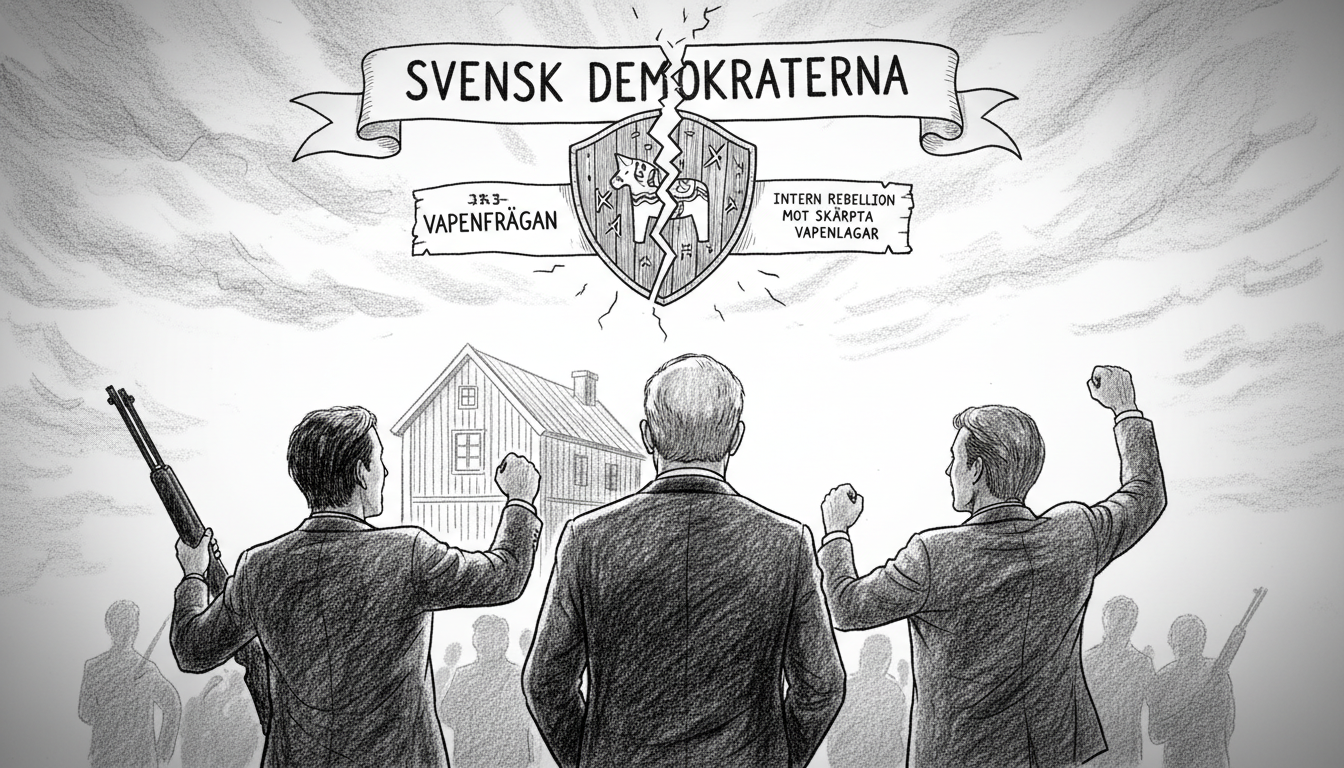The Sweden Democrats confront deepening internal divisions over firearms policy ahead of their national conference. Party leader Jimmie Åkesson faces calls to completely reverse course on proposed weapons restrictions. Sources close to party leadership indicate a carefully timed compromise might partially protect the party board. The conflict remains deeply contentious despite potential solutions.
In February, Sweden's governing coalition announced plans to tighten gun laws following the Örebro mass shooting. The proposal targets banning semi-automatic weapons with military-style appearances for hunting purposes. This includes the controversial AR-15 rifle. Many Sweden Democrats reacted with anger to these proposed restrictions.
Party traditionalists and hunting enthusiasts strongly oppose the measures. They argue these restrictions infringe on Swedish hunting traditions and legitimate sports shooting. Internal critics now prepare for renewed confrontation at the upcoming party gathering.
The Sweden Democrats have historically positioned themselves as defenders of hunting rights and legal gun ownership. This creates tension with their role in Sweden's governing coalition. The party must balance coalition commitments against their traditional voter base's expectations.
Political observers note this conflict reveals broader challenges within the party. Governing requires compromise that sometimes conflicts with core party principles. The weapons debate tests the Sweden Democrats' ability to govern while maintaining internal unity.
What does this mean for Sweden's firearm regulations? The proposed ban specifically targets weapons based on their appearance rather than functionality. This approach has generated debate about whether regulations should focus on cosmetic features or actual capability.
International readers should understand Sweden's unique relationship with firearms. Hunting remains deeply embedded in rural Swedish culture, particularly in northern regions. Many Swedes view legal gun ownership as part of their cultural heritage rather than solely about self-defense.
The outcome of this internal party struggle could influence Sweden's broader political landscape. A weakened Sweden Democrats party might affect the stability of Sweden's minority government. The party's ability to manage internal dissent while governing will be closely watched.
This situation demonstrates the challenges populist parties face when transitioning from protest movements to governing partners. The weapons debate forces the Sweden Democrats to choose between ideological purity and practical governance.

